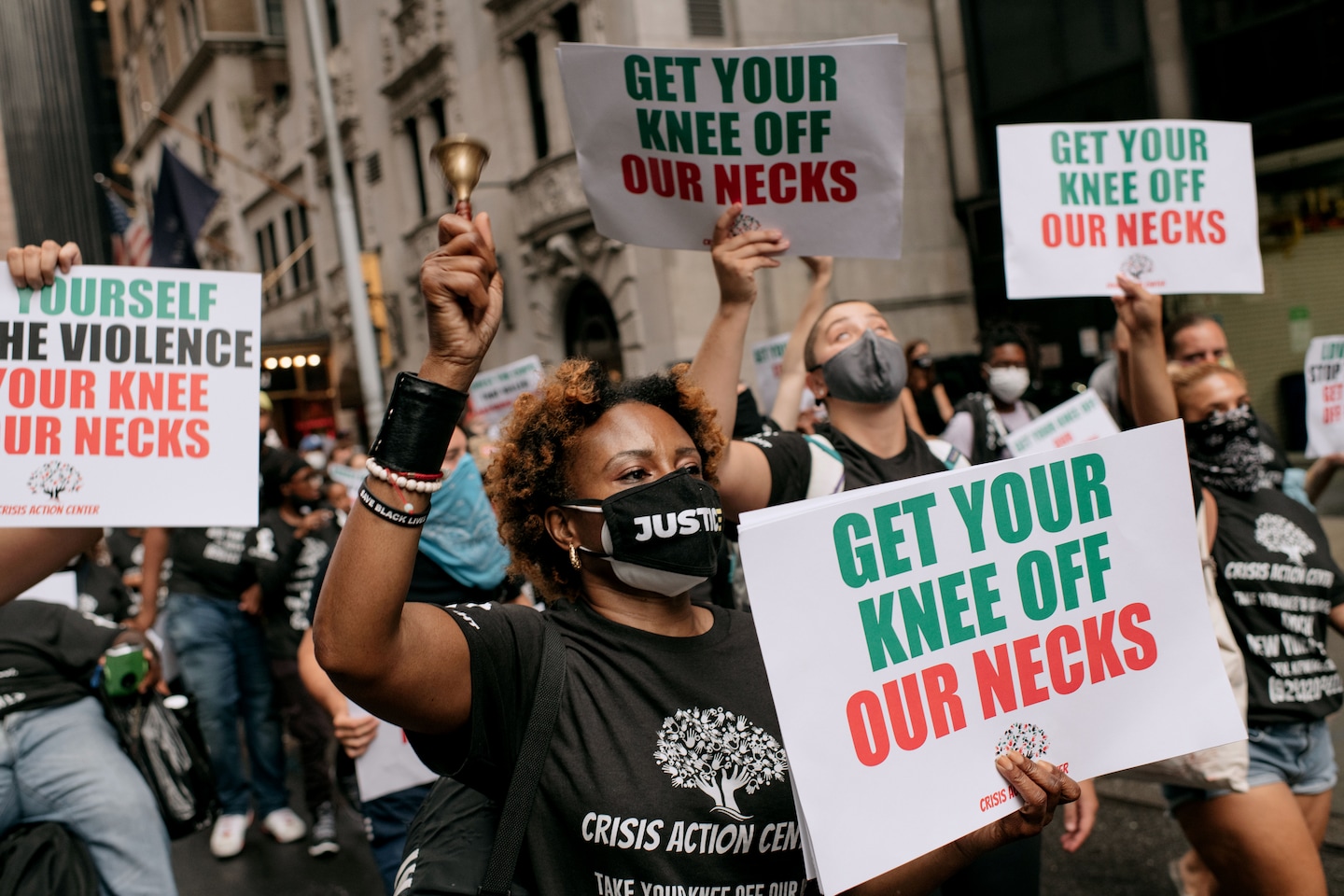How to reform police liability without involving McConnell or Trump

Police officers enjoy almost complete immunity from civil suits in federal court. They can shoot someone, taser someone, choke someone, or press their knee into someone’s neck until they can’t breathe. They can brutalize peaceful protesters. And yet, in large part because of the court-made rule of qualified immunity, officers rarely face liability.
The calls for ending qualified immunity have not gone unheard. The House of Representatives passed a bill that would eliminate it and enable victims to obtain remedies for violations of their civil rights. But Senate Majority Leader Mitch McConnell (R-Ky.) and the Senate have balked at this change, as has President Trump. Likewise, the Supreme Court recently declined to revisit the subject.
The good news is that changing federal law is not the only way to erase the grave accountability deficit for unlawful police violence. There’s an alternative hiding in plain sight: state law.
While no state can change federal law, each state has the authority to change its own rules. State tort law has long empowered individuals who have been choked, shot or maimed to sue the person who victimized them. And, while the states have their own sorry track record when it comes to police accountability, it is the prerogative of state lawmakers — not the federal government — to change rules of state law that stand in the way of imposing legal responsibility for police violence.
There are already some hints of progress at the state level. In May, a New York state appellate court reinstated a lawsuit brought by Denise Elliott-Owens against New York City and several police officers for the killing of her 18-year-old-son, Khiel Coppin. Responding to Elliott-Owens’s 911 domestic dispute call, police officers shot Coppin numerous times in the mistaken belief that the hairbrush he was carrying was a gun. In 2017, a New York trial judge dismissed the case without trial. However, a unanimous appellate court reversed that decision, allowing several of the claims for unjustified use of deadly force to proceed to trial, where a cross-section of the community will decide what really happened.
State legislatures can bring even more important change — and here, too, there are positive signs. Colorado recently enacted a police reform bill that, among other things, eliminates qualified immunity for state constitutional rights claims, clearing a path for a range of lawsuits. Connecticut has similarly taken a step in the right direction by enacting a law that expands potential civil liability for police violence.
So why has so much attention gone to federal qualified immunity? The answer has everything to do with our sordid history of systemic racism.
Following the Civil War, Congress enacted federal laws designed to hold state officials accountable for violations of civil rights, including lynchings. Among these was an 1871 statute often referred to as “the Ku Klux Klan Act.” In theory, this law should have been unnecessary, because beatings and killings were already illegal under state law. But Congress recognized that entrenched racism and state-law immunities virtually guaranteed unaccountability in the states. It thus wisely decided that individual victims should have the power to hold state actors accountable in federal court under federal law. As a result, federal law became the default avenue for all individuals, regardless of race, seeking redress in response to police violence.
Shamefully, federal courts for nearly a century declined to enforce the Ku Klux Klan Act as it was intended to operate. In the 1960s, the Supreme Court reinterpreted the act to expand its reach, while crafting a narrow version of qualified immunity. The more conservative court of the 1980s inflated qualified immunity into a nearly impenetrable shield for individuals, police departments and municipalities.
While advocates should continue to press for federal law reform, the people’s representatives in state capitals need not and should not wait for this to happen. It is time to put pressure on states to dismantle the immunities they have long maintained for police officers, police departments and municipalities. The drive for federal protection originated precisely because states had failed to enforce their own laws on behalf of people of color. Now is the moment to rectify that failing.
Read more:






